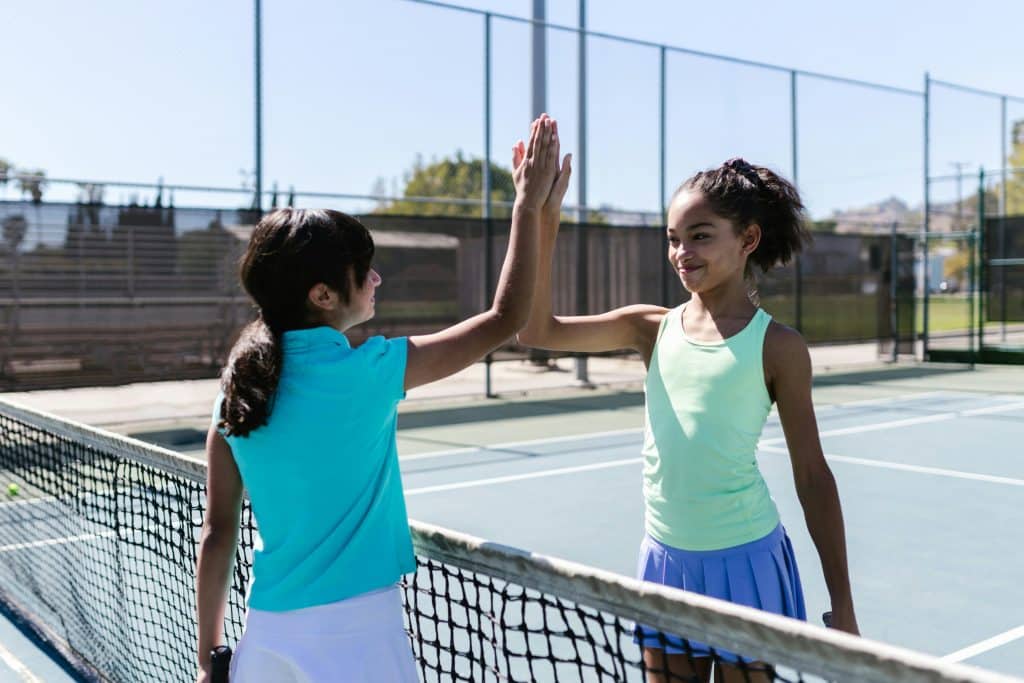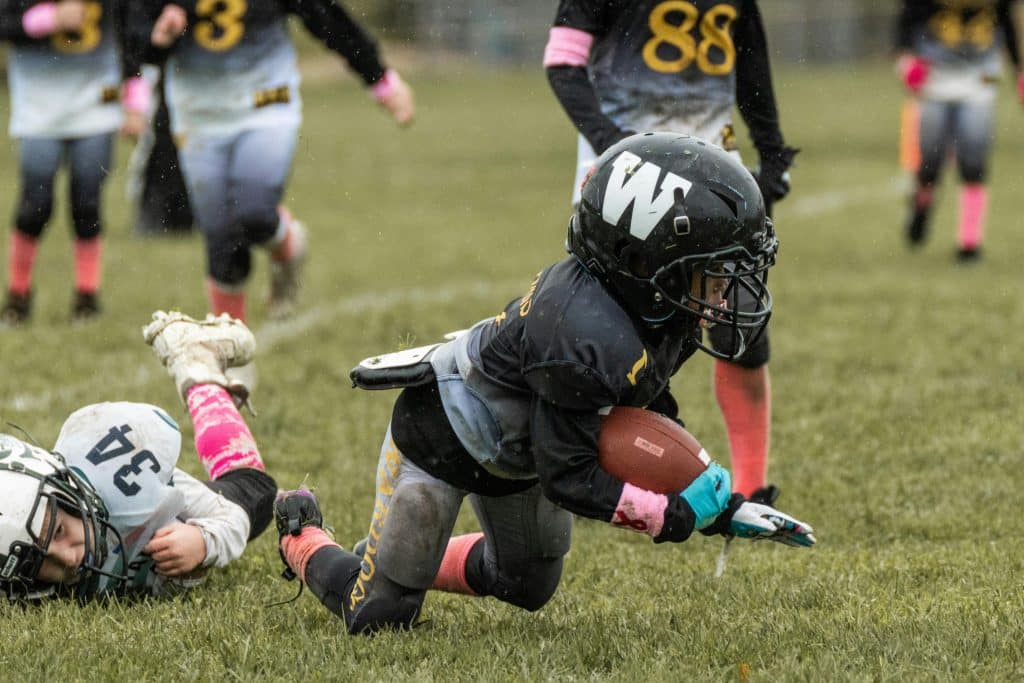Have you ever wondered how a simple game of soccer or basketball could shape your child’s entire future? Youth sports are not just about scoring goals or winning matches. They’re powerful catalysts for holistic child development, nurturing everything from physical abilities to emotional intelligence.
Through organized sports activities, children discover more than just how to play a game; they build lifelong skills in teamwork, resilience, and leadership while forming meaningful friendships that can last a lifetime.
Whether it’s developing grit through facing challenges on the field or learning to communicate effectively with teammates, athletic participation provides children with a comprehensive toolkit for success that extends far beyond the playing field into their academic and personal lives.
Access and After-School Opportunities
After-school sports programs have become a cornerstone of child development in communities across the country. These organized activities create valuable opportunities for kids to stay active, learn new skills, and build meaningful connections with peers.
The positive impact of these programs extends far beyond physical activity. They provide safe spaces for children during the critical after-school hours when many parents are still at work. Sports programs help develop time management skills as kids balance their academic responsibilities with athletic commitments. Through consistent participation, children gain confidence, develop friendships, and learn valuable life lessons that complement their classroom education.
Affordable sports programs at community centers help bridge accessibility gaps, while local parks offer inclusive activities for all skill levels. School-based athletics extend learning beyond the classroom, and volunteer coaches make youth sports possible in underserved areas. Scholarship programs also ease the burden of registration and equipment costs for families.
Participation Trends Among the Youth
Youth sports have become a cornerstone of childhood development, shaping millions of young lives across the nation. According to the National Center for Health Statistics, 54.1% of children aged 6-17 participated in sports activities. The surge in sports participation has led to increased attention on proper equipment and gear to support young athletes.
As more kids join team sports and individual activities like wrestling, having the right gear helps them perform better and stay safe. For wrestling enthusiasts, for example, high-quality wrestling singlets can make a real difference in their training and competition experience.
Sports participation from an early age promotes physical strength, coordination, and healthy growth. Team activities help children develop social skills and form lasting friendships, while individual sports encourage self-reliance and personal discipline. Together, these benefits support overall development and well-being.
The rising trend in youth sports reflects parents’ growing awareness of athletics’ role in fostering well-rounded development. Kids who join sports programs often gain more than just physical benefits. They develop crucial life skills that serve them well into adulthood. This widespread engagement in sports activities shows how deeply valued athletic participation has become in supporting children’s growth and development.
Social Bonds and Teamwork Skills

Team sports offer kids a unique chance to build meaningful connections while learning how to work together. Through shared experiences on the field, court, or mat, children develop natural bonds with their teammates. They’re not just playing a game—they’re creating friendships that often last beyond the season.
Daily practice helps kids communicate clearly with peers, while group strategies teach the value of listening. Shared victories and losses foster emotional bonds, and team celebrations build a sense of belonging. Collaborative problem-solving strengthens teamwork and social skills.
Kids who participate in team sports learn to trust their teammates and understand the importance of mutual support. Whether they’re passing the ball in basketball or spotting a fellow gymnast, these interactions teach valuable lessons about dependability and cooperation.
The skills they gain through sports—like reading social cues, showing empathy, and working through conflicts—become natural habits that serve them well in school, future careers, and personal relationships.
Resilience and Grit
Sports play a vital role in shaping a child’s mental toughness and determination. Kids who participate in athletics develop stronger perseverance skills through facing various challenges on the field. According to research, 34% of youth athletes score high on the grit scale compared to 23% of non-participants, showing the clear benefits of sports involvement.
The process of learning from failures and bouncing back creates a solid foundation for resilience that carries over into other areas of life. Whether it’s missing a crucial shot or losing an important game, these experiences help kids develop a growth mindset.
Regular practice teaches the value of consistent effort and dedication, while competition helps children perform under pressure. Recovering from losses builds emotional resilience, and setting goals enhances strategic thinking. Team challenges also strengthen collective problem-solving skills.
The grit developed through sports becomes particularly valuable as children progress in their academic journey and face real-world challenges. They learn to push through difficulties, maintain focus during tough times, and understand that setbacks are temporary. These qualities create a strong mental foundation that serves them well in future endeavors, from school projects to career goals.
Physical Health and Fitness Gains

Youth sports play a vital role in shaping a child’s physical health and fitness journey. Regular participation in athletic activities helps kids build strong muscles, improve their coordination, and boost their cardiovascular health. Through consistent movement and exercise, children develop fundamental motor skills that serve as building blocks for their athletic abilities.
Diverse movement patterns enhance balance and agility while promoting proper posture and body awareness. Regular physical activity also improves hand-eye coordination, reflexes, endurance, flexibility, and range of motion.
Beyond the immediate physical benefits, sports help kids create healthy habits that can last a lifetime. They’re more likely to stay active as they grow older, which helps maintain a healthy weight and reduces their risk of obesity. Plus, being involved in sports often leads to better sleep patterns and improved eating habits, as kids learn to fuel their bodies properly for physical activities.
Sports also help children develop a positive relationship with their bodies. Instead of focusing on appearance, they learn to appreciate what their bodies can do and achieve. This mindset shift can be incredibly valuable during their developmental years, fostering self-confidence and a healthy body image that carries into adulthood.
Mental Health and Emotional Growth
Sports play a vital role in shaping children’s emotional well-being and mental health. Regular physical activity through sports helps kids develop emotional resilience and coping mechanisms that serve them throughout their lives. When children participate in organized sports, they’re getting much more than just exercise. They’re learning valuable skills for managing stress and building mental strength.
The supportive environment of youth sports offers unique opportunities for emotional development. When kids face challenges on the field or court, they learn to process disappointment, celebrate success appropriately, and maintain composure under pressure.
These experiences create natural teaching moments where children can practice emotional regulation with guidance from coaches and teammates. The skills they gain—from handling competitive stress to working through frustration—become valuable tools for managing their mental health as they grow older.
Leadership and Responsibility
Sports create natural opportunities for kids to step into leadership positions and grow their decision-making skills. Whether it’s being team captain, organizing practice drills, or helping younger players learn the basics, these experiences shape confident and capable young leaders. The athletic environment offers a safe space where children can test their abilities and learn from both successes and setbacks.
Leading warm-ups and practices, making quick decisions in games, and managing equipment teach responsibility and initiative. Supporting teammates and accepting accountability for outcomes help develop leadership and resilience.
Through sports participation, children develop crucial time management skills as they balance practice schedules, games, and academic commitments. They learn to show up prepared, follow through on their commitments, and take ownership of their role within the team. These experiences help build a strong foundation of responsibility that carries over into other areas of life.
The pride that comes from successfully leading a team or completing assigned tasks boosts self-confidence and encourages kids to take on more challenging roles. As they progress, these young athletes often become natural leaders in school, social situations, and eventually, their future careers.
Positive Guidance from Adults
Supportive adults play a vital role in shaping a child’s athletic journey, creating an environment where kids can thrive and grow. Coaches and parents who understand developmental stages can help young athletes build confidence while learning new skills. Their guidance extends beyond teaching game strategies; they are instrumental in fostering emotional growth and character development.
The presence of caring mentors makes a huge difference in how children experience sports. These adults serve as role models, showing kids how to handle both wins and losses with grace. They also create safe spaces where young athletes feel comfortable trying new things and pushing their limits.
The impact of positive reinforcement from trusted adults helps shape how children view themselves and their abilities. When mentors demonstrate patience and understanding, kids develop stronger self-esteem and feel more confident taking on challenges. This supportive foundation creates an atmosphere where young athletes can embrace mistakes as learning opportunities and develop resilience that will serve them well throughout their lives.
More Than a Game
Youth sports stand as a powerful catalyst for holistic child development, offering far more than just physical benefits and competitive experiences. The combination of structured activities, positive adult guidance, and peer interactions creates an environment where children can develop essential life skills while building lasting friendships and confidence.
Through sports participation, young athletes learn valuable lessons about teamwork, resilience, and personal responsibility that will serve them well throughout their lives. Whether they’re playing basketball, wrestling, or soccer, every practice and game becomes an opportunity for growth, teaching them that success comes through dedication, collaboration, and a positive mindset.
